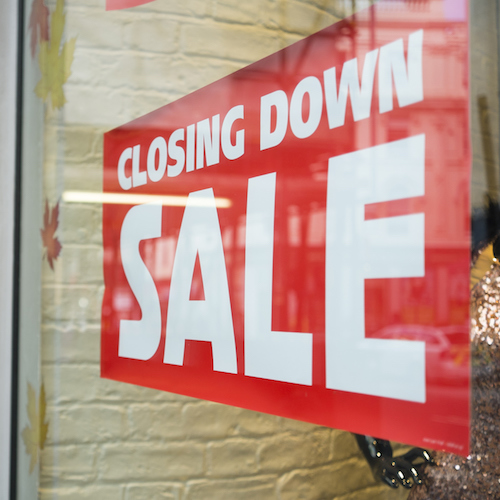
In 2016, major U.S. retailers announced the closure of 2,139 stores and the opening of 2,159 new stores. Through this week, retailers have announced the closure of 6,098 stores and the opening of 3,381 new stores, as the brick-and-mortar retail business struggles to gain a foothold in the online space that will help it fight back against the threat that it will be swamped by online retailers like Amazon.com Inc. (NASDAQ: AMZN) and Alibaba Group Holdings Ltd. (NYSE: BABA).
Last week’s bankruptcy filing by Toys “R” Us did not include the closure of any of its 1,600 North American stores. At least not until the holiday shopping season is over.
Women’s shoe maker Aerosoles also filed for bankruptcy recently and is expected to close as many as 74 stores, while family-owned Rothman Furniture is closing its six stores.
The data were reported Friday by Fung Global Retail & Tech.
The largest of the closures announced so far this year is 1,000 RadioShack stores, followed by the demise of 700 Payless shoe stores. Ascena Retail Group Inc. (NASDAQ: ASNA) has announced the closure of 400 stores so far this year. By July of 2019, Ascena may close another 268 to 667 stores, depending on negotiations with mall owners and landlords.
Among other retailers closing large numbers of stores are Sears Holdings Corp. (NASDAQ: SHLD), with plans to eliminate 358 Sears and Kmart stores, and J.C. Penney Co. Inc. (NYSE: JCP), which plans to close 138 stores this year. Limited Brands Inc. (NYSE: LB) will close 250 stores this year, and Gap Inc. (NYSE: GPS) has said that it will close 70 stores this year and a total of 200 by 2020.
Looking back at the past 12 months, the only retailer that has seen a share price improvement from all these closures is Gap, where shares are up 26% with virtually all the improvement coming in the past 30 days or so. Gap’s plan to close 200 Gap and Banana Republic stores and open 270 Old Navy and Athleta stores was generally well-received by analysts.
Sears and J.C. Penney store closures are survival measures that will only pay off if the companies can maintain some sort of revenue stream while reducing their footprint. That is very hard to do, and if any of these companies survive it will be both a miracle and as mere shadows of their former selves. Sears stock has lost 40% of its value in the past 12 months, and J.C. Penney’s stock is down nearly 60%.
Ascena and Limited have seen share prices plunge by 65% and 50%, respectively, in the past 12 months. Over the past two years, Ascena stock is down nearly 85% and Limited stock is down nearly 60%.
Sears has dropped 72% over the past two years, and J.C. Penney is down nearly 60%. Even Gap was down nearly 30% until the stock started its climb last month. Gap stock is the best performer of this bunch over the past two years, down just 10%.
And what’s happened with Amazon and Alibaba? The former is up nearly 78% in the past two years and the latter is up about 170%. Over the past 12 months, Amazon shares have added nearly 20%, while Alibaba has added 62%.
Thank you for reading! Have some feedback for us?
Contact the 24/7 Wall St. editorial team.




